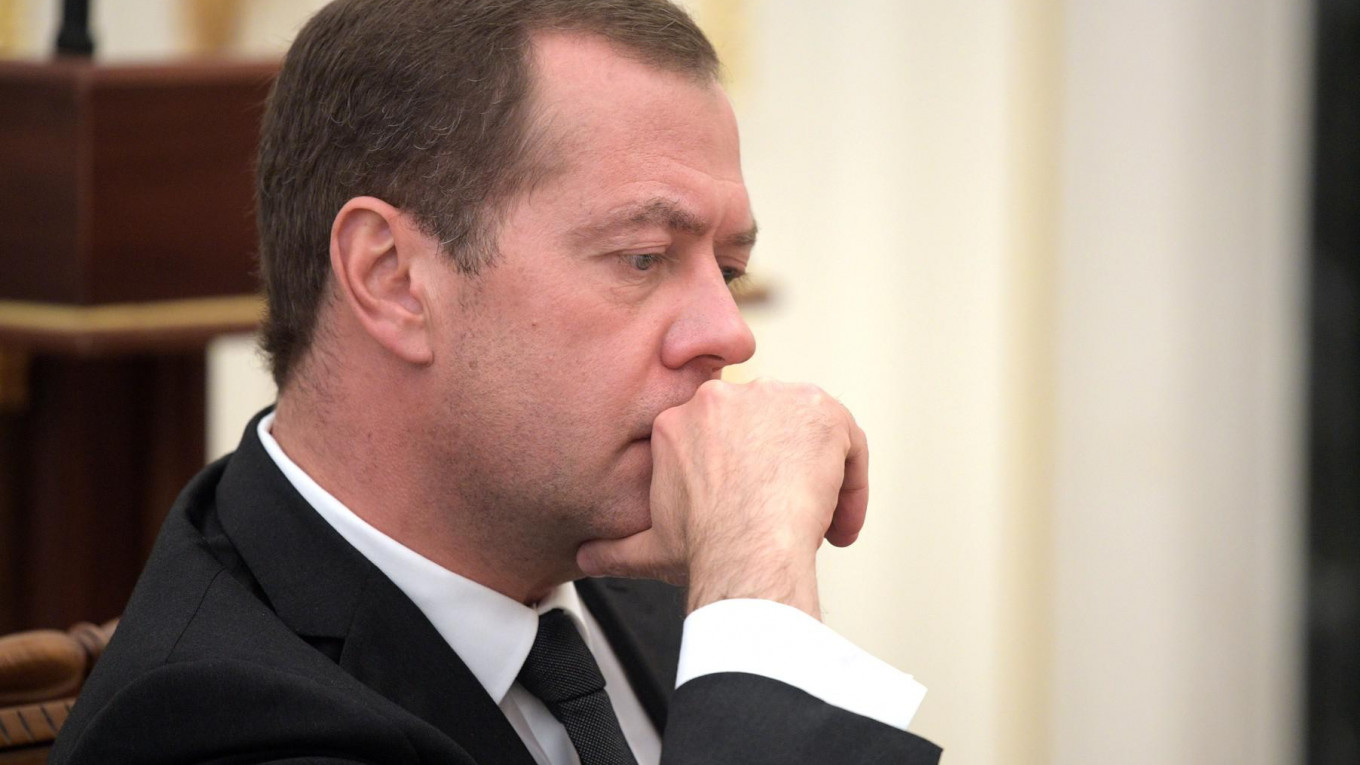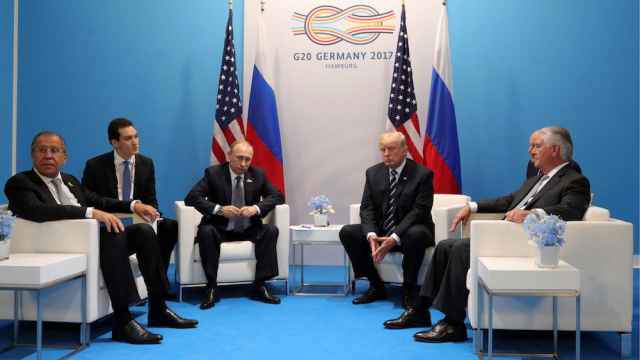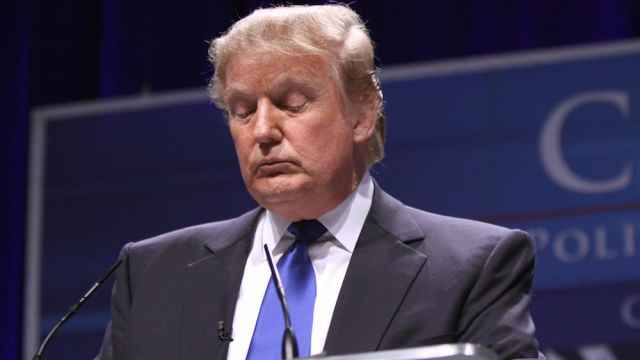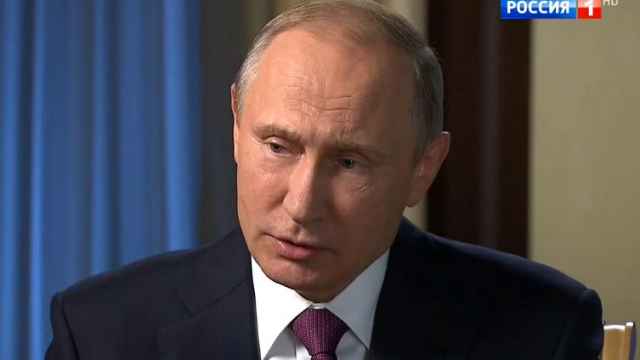Top officials have shrugged off the significance of new sanctions signed into law by U.S. President Donald Trump on Wednesday, saying their biggest impact will be on Russia’s foreign, not domestic affairs.
“[The signing by Trump] is not news,” Kremlin spokesman Dmitry Peskov was cited as saying by the state-run RIA Novosti news agency on Wednesday. “This law would have been accepted with or without the president’s signature. De facto, this changes nothing.”
He added that Russia had already taken measures in response, referring to Moscow’s decision last week to oust hundreds of U.S. diplomats in Russia and bar access to two diplomatic properties.
U.S. President Donald Trump signed the sanctions approved by U.S. Congress into law on Wednesday, while also criticizing them as “significantly flawed.”
In Moscow, the reactions to the signing showed disillusionment with the U.S. president’s apparent inability to change the downward spiral of U.S.-Russian relations.
“This is a very short-sighted and even dangerous line, which threatens the stability that Moscow and Washington are especially responsible for,” the Foreign Ministry said in a statement.
Reacting to the news on Wednesday, the head of the Federation Council's international affairs committee Konstantin Kosachyov, wrote that Trump had "surrendered" to pressure from the U.S. Congress.
"Out of the three options: confronting Congress (by vetoing the law), refusing to sign ("I don't agree, but there is nothing I can do") or sign, the president has chosen the third option," he wrote.
"The U.S. has not left any opportunity for constructive cooperation with Russia," he added.
In his own bilingual post on Facebook, Prime Minister Dmitry Medvedev called the new sanctions “a full-fledged economic war on Russia,” saying Trump’s signing had shown his administration’s “total weakness.”
“It ends hopes for improving our relations with the new U.S. administration,” he wrote. “The sanctions regime has been codified and will remain in effect for decades unless a miracle happens. This legislation is going to be harsher than the Jackson-Vanik amendment.”
That Cold War-era law from 1974 introduced trade sanctions on the Soviet Union for its restrictions on emigration and freedom of movement. The law was only repealed in 2012 when President Barack Obama signed the Magnitsky Act, which carried its own sanctions against certain Russian officials who were implicated in the death of Russian lawyer Sergei Magnitsky.
But Medvedev also downplayed the significance of the measures, calling them “meaningless” and even to Russia’s “advantage” because they would encourage the country to become self-sufficient.
“What does it mean for us? We will steadily continue our work on developing the economy and social sector, take efforts to substitute imports, and solve major national tasks, relying mostly on ourselves,” he wrote. “We will cope.”
A Message from The Moscow Times:
Dear readers,
We are facing unprecedented challenges. Russia's Prosecutor General's Office has designated The Moscow Times as an "undesirable" organization, criminalizing our work and putting our staff at risk of prosecution. This follows our earlier unjust labeling as a "foreign agent."
These actions are direct attempts to silence independent journalism in Russia. The authorities claim our work "discredits the decisions of the Russian leadership." We see things differently: we strive to provide accurate, unbiased reporting on Russia.
We, the journalists of The Moscow Times, refuse to be silenced. But to continue our work, we need your help.
Your support, no matter how small, makes a world of difference. If you can, please support us monthly starting from just $2. It's quick to set up, and every contribution makes a significant impact.
By supporting The Moscow Times, you're defending open, independent journalism in the face of repression. Thank you for standing with us.
Remind me later.






